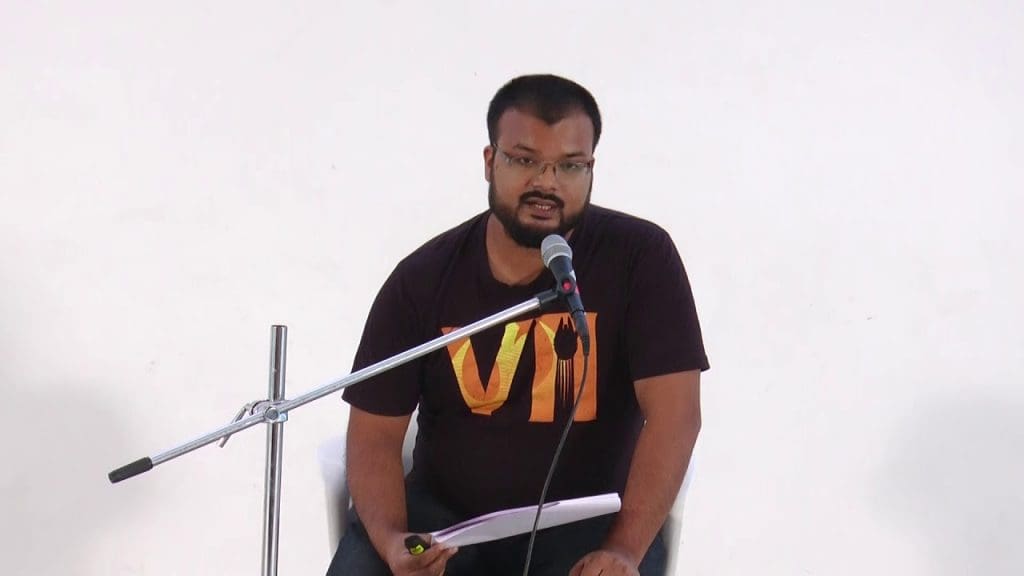
Poet and scholar Shalim Hussain on Tuesday won the English PEN’s flagship translation award 2021 for I am Miyah: Poetry and Song by Bengali-Muslims in Assam.
The book, published by Tilted Axis Press, was translated from the Char-Chapori dialect of Assamese and Bengali into English by Shalim Hussain.
I am Miyah is the first collection of Miyah poetry in translation.
In Assam, ‘Miya’ is exclusively directed at Muslims of Bengali origin. More than a decade since Shalim Hussain and others from the Bengali Muslim community have found a way to take the derogatory term Miya and subvert it. Now, Hussain and his colleagues are using poetry as a tool of resistance, confrontation, and empowerment. This growing form of expression is known as Miya poetry.
Hussain is also a Ph.D. scholar at Jamia Millia Islamia, New Delhi, deeply invested in preserving and reviving the sociocultural and politically fragile status of his community of Bengal-origin Assamese Muslims.
Shalim Hussain’s first collection of poems, Betel Nut City, was awarded the RL Poetry Award (Editor’s Choice) 2017. Post-Colonial Poems, his translation of poetry by the Adivasi poet Kamal Kumar Tanti also came out in 2019.
Hussain is also the 2020 Charles Wallace India Trust Literary Translation and Creative Writing Fellow at Literature Across Frontiers – University of Wales Trinity Saint David with a project of compiling and translating an anthology of poems by Bengal-origin Muslims of Assam.
Hussain is one among the founders of the Facebook page ‘Itamugur’ — an online forum that celebrates the poetry, music and performing arts of Assam’s ‘Char Chaporis’.
Two years before, a first information report was filed with the Assam police against 10 people including Shalim Hussain under sections of the Indian Penal Code that pertain to criminal conspiracy, promoting social enmity, and insulting religion – for writing poetry. In the police complaints, the poets have been accused of attempting to endanger national security through poems that assert their Miya identity.
“My journey with Miyah poetry, or the current phase of assertive Char Chapori poetry, started in 2016. Prior to it, I had been publishing poems for more than a decade. My first book of poems was published in 2017. Poetry as an art form came organically to me; I was looking at the world through a unique lens and had the ability to present this vision through carefully chosen words. Over the past few years, there has been a steady flow of literature from the Chars. This includes a strong collection of poems which depict the lived experiences of residents. Miyah poetry, in my opinion, is a continuation of the genre of Char Chapori poetry and its evolution,” Hussain said in an interview to Verve Magazine. Read the full text of interview here.
He went on to say: “As long as Miyah poems are written, the tradition will remain alive. In the absence of organisational structure, independent poets write poems and share them on social media platforms. There isn’t a formal definition of ‘Miyah Poetry’ which we abide by; poets themselves decide if their work qualifies to be termed in this genre. It is democratic, as no one decides if a work is a ‘real’ poem or critiques it as a good or bad poem. Every Miyah poet is an individual and each voice is precious for us.”
Read a profile of Hussain written by Natasha Badhwar here.
Books from 15 countries and 13 languages have won English PEN’s flagship translation awards this year.



